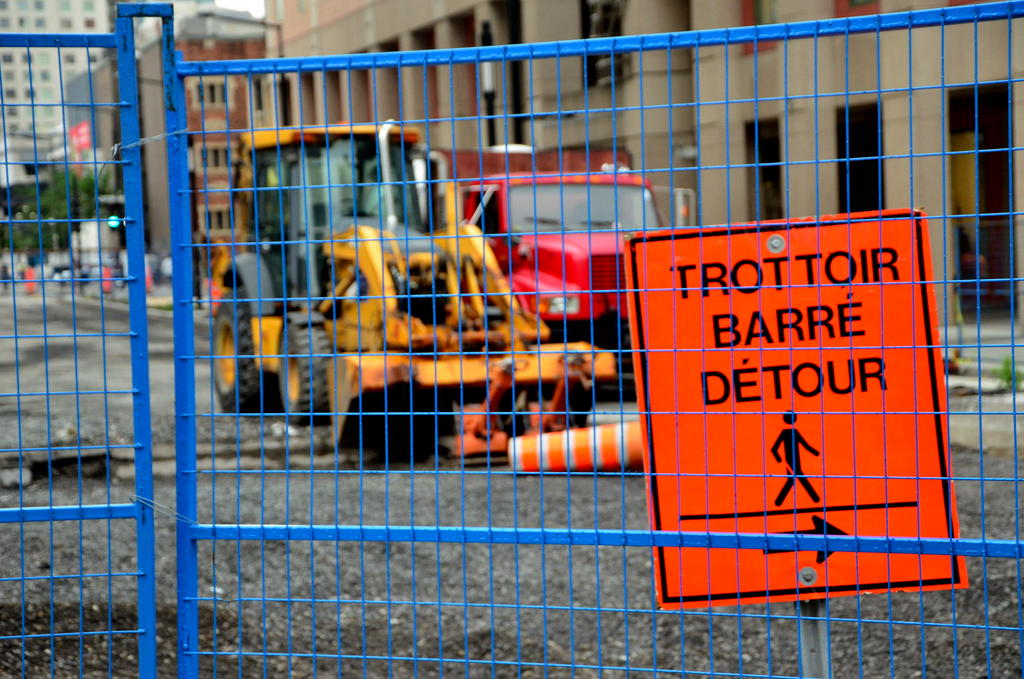The renovations outside of Concordia University set to finish this Friday may be delayed for an undetermined amount of time.
The construction started this summer, with the city of Montreal revamping and repaving De Maisonneuve Blvd. from Bishop St. to St-Mathieu St. to include a bike path, green space and an extended sidewalk. While the portion between Guy St. and St-Mathieu St. reopened this month, the rest of the construction is supposed to finish by the end of September.
According to university spokesperson, Chris Mota, the Public Works project slated to finish this Friday, Sept. 28 may be behind schedule.
“The roadwork is the city’s construction and it’s on their schedule,” said Mota. “Based on their work, ours can only follow.”
“I do believe it’s a little past schedule,” added Mota. “With construction, until it’s done we don’t know.”
Since the roadwork is entirely governed by the city of Montreal, the university aims to update their website regularly to inform students about the progress of the renovations.
The construction and blocked off De Maisonneuve Blvd. have caused headaches for students traveling between the downtown and Loyola campuses. The roadwork forced Concordia to change the location of the shuttle bus stop from in front of the Henry F. Hall Building to the corner of Ste-Catherine St. and Mackay St., before it moved to Bishop St. and De Maisonneuve Blvd., until completion.
According to undergraduate student Amrit Kaur, the additional traffic due to the construction made her late for class.
“It took me 35 minutes from downtown to Loyola,” said Kaur. “Usually when I take the shuttle it’s between 15 and 20 minutes.”
Kaur insists that the shuttle is still the quickest commute from one campus to the other and that she tries to leave earlier to ensure she’s not late for her courses.
Brittany Williams experienced the same delay when she travelled from Loyola to downtown recently.
“It’s always a little frustrating to drive an extra five to 10 minutes just so the shuttle bus can let us off near our actual stop,” explained Williams.
Bus driver Fernand Groulx said there’s no remedy to the situation until the construction is over.
“You can’t do anything,” said Groulx. “There’s now construction between St-Jacques St. and Upper Lachine too, it happens.”
Groulx emphasized that construction is merely part of his job and the commute between the two campuses – while he may be delayed – didn’t make his day any harder.
Williams suggested that Concordia provide extra shuttle busses to offset the traffic that snarls up the downtown core due to the construction.
“Considering the construction is the city’s fault, the university could perhaps revisit the shuttle schedule,” said Williams. “They can see if they can make some changes or additions so there will be less delays or inconveniences.”
Public Works of the city of Montreal could not be reached for comment by press time.
